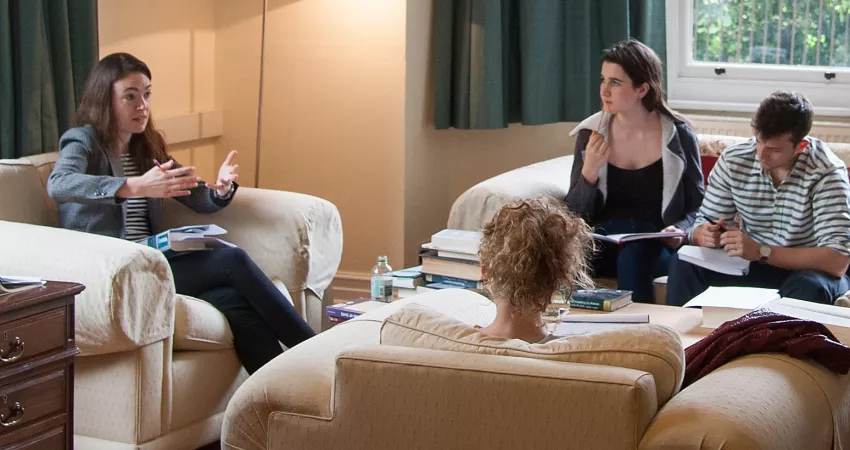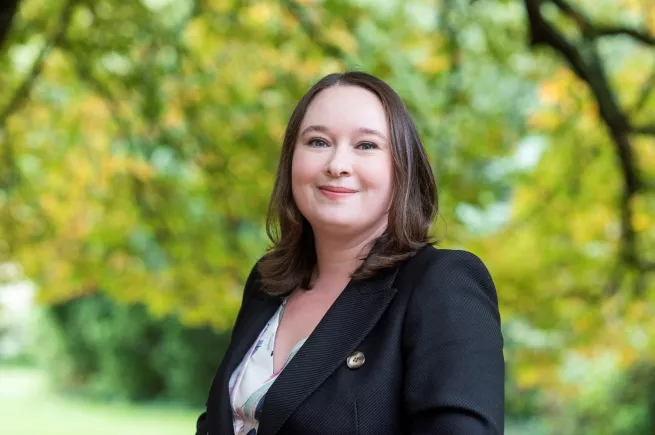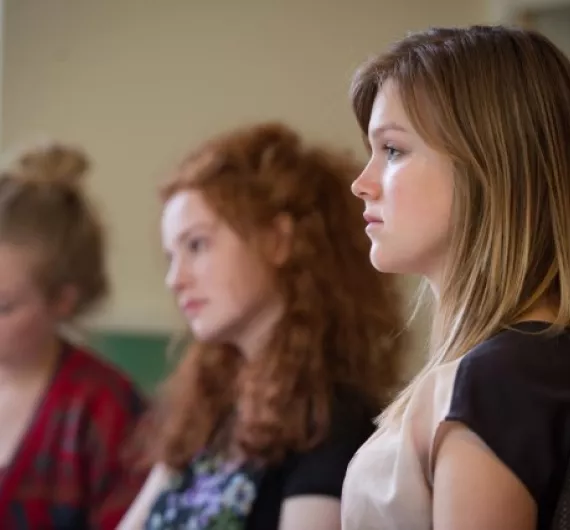Margarita Vaysman joined New College and the Slavonic Sub-Faculty in 2023, after six years as Lecturer, and then Senior Lecturer, at the University of St Andrews in Scotland. Dr Vaysman received her MPhil and DPhil degrees in Modern Languages (Russian) from Wadham College, Oxford, in addition to kandidat filologicheskikh nauk and spetsialist degrees from Perm State University in Russia. Dr Vaysman currently serves as chair of the National Research and Development Committee for the British Association for Slavonic and East European Studies BASEES), as well as a co-convenor for its 19th Century Study Group.
Teaching
Dr Vaysman teaches most Russian undergraduate literature papers and specifically those focusing on the nineteenth century, gender, history of ideas and Russophone cultures. She welcomes postgraduate applications for MPhil and DPhil projects and supervision on the topics of history of gender and sexuality in Russia and Ukraine, nineteenth-century Russophone literature, Realist novel, and narrative, gender and queer theory.
Research Interests
Dr Vaysman’s research focuses on literary texts, primarily the Realist novel, and history of gender and sexuality. Her first monograph Self-Conscious Realism: Metafiction and the Nineteenth-Century Russian Novel was published by Legenda (Cambridge, Modern Humanities Research Association, 2021). This book explores instances of literary self-consciousness – a narrative technique that forces readers to be aware that they are reading a work of fiction – in Russian literature. The book has been reviewed in Russian Review (‘valuable’); Slavic and Eastern European Review (‘original’); Russian Literature (‘sophisticated and free from stereotypical approaches to its subject’) and Canadian Slavonic Papers (‘theoretically grounded, meticulously researched and well-argued’). In 2020, she co-edited a volume Nineteenth-Century Russian Realism: Society, Knowledge, Narrative, which showcased the new interdisciplinary, inclusive approaches to the Russian canon. The volume was featured in the ‘Best books of 2021’ list by the major Russian news portal Polit.ru; and reviewed in Slavic Review as ‘pioneering’, ‘formidable’, an ‘essential reading for anyone who studies or teaches nineteenth-century Russian prose’.
Dr Vaysman is now co-editing The Oxford Handbook of Global Realisms, under contract with OUP, as well as working on a second monograph, provisionally titled A Brave Life: Queer and Transgender Erasure in Russian Culture. This investigation spans the period from the early days of the Russian Empire to present day Russia, where homo- and transphobic state rhetoric co-exists with a vibrant drag culture and successful activist interventions. Dr Vaysman’s work has been supported by international awards from the British Council, British Academy, British Association of Slavonic and Eastern European Studies (BASEES), Columbia University, Princeton University, Open Society Foundation, Scottish Funding Council, UKRI and CEELBAS.
Selected Publications
Dr Vaysman’s writing has appeared in general interest editions such as Times Higher Education, as well as peer-reviewed journals like The Russian Review, The Slavonic and East European Review, Modern Language Review, AvtobiogafiЯ, Forum for Modern Language Studies, Antropologicheskii Forum, and Tolstoy Studies.
- Vaysman, Margarita. 2023. ‘The Trouble with Queer Celebrity: Aleksandr Aleksandrov (Nadezhda Durova)’s A Year of Life in St Petersburg (1838)’, Modern Language Review, 118.1, 97-113.
- Vaysman, Margarita. 2022. “‘I Became a Man in a Military Camp’: Negotiating a Transmasculine Identity in Aleksandr Aleksandrov (Nadezhda Durova)’s Personal Documents and Literary Fiction’, AvtobiografiЯ, 11, 33-63.
- Vaysman, Margarita. 2022. ‘What Is to Be Done with the Socialist Realist Canon: Nikolai Chernyshevskii in Late and Post-Soviet Cultural Imagination’, The Slavonic and East European Review, 100.2, 286-294.
- Vaysman, Margarita. 2022. ‘Tolstoy as the Subject of Art: Painting, Film, Theatre’, in Tolstoy in Context, ed. by Anna Berman (Cambridge: Cambridge University Press, 2022), pp. 323-335.
- Vaysman, Margarita. 2021. ‘A Woman’s Lot: Realism and Gendered Narration in Russian Women’s Writing of the 1860s’, The Russian Review 80.2 (Spring 2021), 229-245. (Translated and re-published in Russian as ‘Avdot’ia Panaeva vs Nikolai Stanitskii: Gender Ambivalence and Discussions of Realism in A Woman’s Lot (1862)’, Novoe Literaturnoe Obozrenie, 181/2023, 226-244).
- Vaysman, Margarita. 2021. Self-Conscious Realism: Metafiction and the Nineteenth-Century Russian Novel (Cambridge: Legenda).
- Vaysman, Margarita; Vdovin, Aleksei; Kliger, Ilya; Ospovat, Kirill (eds). 2020. Nineteenth-Century Russian Realism: Society, Knowledge, Narrative (in Russian) (Moscow: NLO).
- Vaysman, Margarita. 2020. ‘“An Author of a Different Kind”: Theory and Practice of Literary Realism in Aleksei Pisemskii’s Troubled Seas (1863)’, in Nineteenth-Century Russian Realism: Society, Knowledge, Narrative (in Russian) (Moscow: NLO), pp. 476-503.
- Vaysman, Margarita. 2017. ‘“Unnecessary Melodrama”: Ideology and Narrative Legacy in Nikolai Chernyshevskii’s What Is to Be Done? (1863) and William Godwin’s Caleb Williams (1794)’, Modern Language Review, 2017 (112), 1-19.

Read more about our tutorial system and what it offers all of our students.
Discover more about New College
Find out more about what it is like studying at one of the largest but friendliest Colleges in Oxford.



